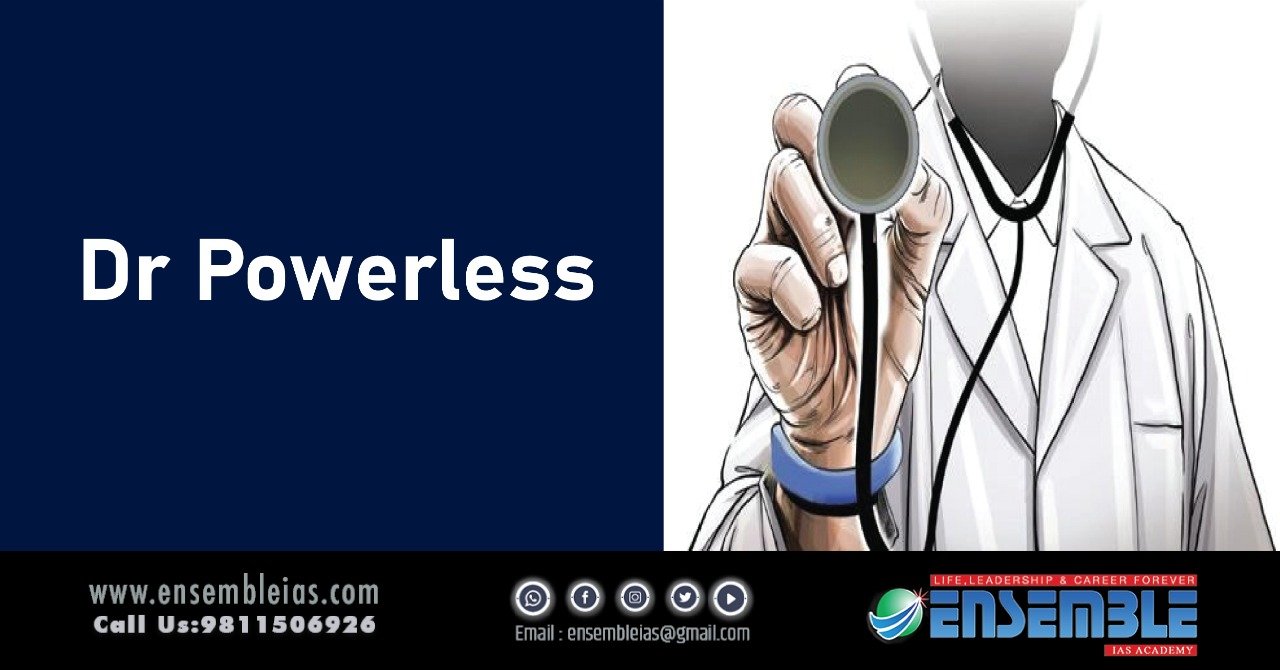Dr powerless: We are trained to save lives, not to resuscitate a crumbling infrastructure:
To buy our online courses: Click Here
As the weather turned windy one evening, I stood on the balcony with my little daughter. She exulted, “I can count the thunderclaps…one…two.” Little did I know then that the same night, another lightning would hit my hospital, extinguishing two lives: A middle-aged emergency medicine officer and a young junior resident, both lost to Covid-19.
On their first day at medical school, I often ask my medical students, “Why do you want to be a doctor?” Many offer answers along the lines of serving humanity, a few claim to fulfil their parental desires, and some others remain silent as they try to blend into the aura of a premier medical institution in the capital of India. Anas Mujahid belonged to the last category. He was often quiet, but whenever I saw him in the college foyer, he always greeted me with a wide smile. In January, the 26-year-old completed his internship and began working as a junior resident at GTBH (Guru Teg Bahadur Hospital), our teaching hospital. Returning from iftar to the hospital, he tested positive at 8 pm and was gone by 3 am. Towards the fag end, we struggled to find a ventilator in the very hospital in whose corridors he dreamt of becoming a compassionate doctor.
Two weeks ago, I texted my postgraduate student to see how his batchmate and best friend’s parent, who had Covid-19 and was admitted to our own hospital, was doing. He told me has was at the cremation. I was speechless. About the same time, I got a panic-stricken call with laboured breathing from my friend, a woman with disability, “No one is picking up the phone at the Delhi government helplines. I don’t want to die.”
During the same period, my wife and son tested positive for Covid. I quickly isolated all family members in different rooms. Sleeping alone in the living room, I would often be disturbed by passing ambulance vans — someone was fighting for their life, whether it’s for a ventilator or oxygen. As a disabled doctor, I am aware that people with disabilities are more vulnerable in this pandemic-turned-into-a-man-made disaster.
According to a new New England Journal of Medicine report, people with intellectual disabilities are 5.9 times more likely than the non-disabled population to die from Covid-19 in the US. And we’re in Delhi, where a medicine required for care is hard to come by in hospitals but can be obtained quickly from a Member of Parliament’s office. What if I don’t get a bed in my own hospital? I was concerned. I don’t have medical insurance either, as disabled people in India still don’t have it in the 21st century.
I dread looking at my phone. It could be another frantic call from someone looking for a place to sleep. My medical college classmate from Haryana called at 2 am a week ago, asking if we had a ventilator at GTBH. There was none in Delhi, and the ex-army officer who had served the country, and for whom he had requested a ventilator, died on his way from the Army Hospital to Chandigarh in search of one. The daily struggle to get enough oxygen breeds a kind of moral cynicism born of powerlessness. We’ve been taught to save lives, not to resuscitate a failed infrastructure.





